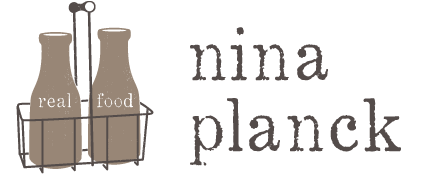Abolish the CSA
4/25/06
Abolish the what? In the local food world, CSA stands for Community Supported Agriculture. It's a brilliant idea but the name does it no favors.
The ideas that inspired the first American CSAs came from organic and  biodynamic farming philosopher Rudolf Steiner in 1920s Austria, and were actively promoted after the Second World War by European farmers who sold locals a share of the harvest.  I don't know what the German (or other) words for these arrangements were, but the first American CSAs probably began in 1986 on Indian Line Farm in Masschusetts and Temple-Wilton Community Farm in New Hampshire, and now Americans call it Community Supported Agriculture.
It works like this. In the spring, you pay in advance for a share of the harvest. During the season, the farmer provides you with a weekly box of food. At first, the food was mostly produce; today farmers may include flowers, eggs, and even meat and poultry.
'Community' refers to the farmer feeding the neighborhood and to buyer participation; some farms require buyers to spend an hour on picking, packing, or sales. 'Support' comes from the fact that the buyer pays the farmer upfront - in April most farmers, like my parents, are low on cash.
Like farmers' markets and restaurants, these weekly sales represent significant income for hundreds of small farmers, and eaters love 'em. Find one near you.
But let's drop the name. Abbreviations are off-putting and officious and require elaboration. CSA reminds me of the TVA and WPA (worthy Depression-era efforts) but the market for local food shouldn't sound like a government program. 'Support' suggests charity. Many people like to 'support' local food; I appreciate the values they're trying to express. But I'd rather eat it.
How about 'farm share'? It's a nicer phrase and needs no explanation. 'We have a 500-member CSA' and 'we buy a CSA' are clunky, but 'we sell (or buy) farm shares' sounds better. And that's what the box of food is: a share of the farm.
A couple of years ago I thought this was a one-woman campaign, saying 'farm share,' but now I hear it more often. It's worth the verbal retraining. I remember when 'local food' was not in the lingo or considered A Good Thing. That was in 1980, when I first sold at farmers' markets and tried to explain, in my clumsy, nine-year-old way, that our food was local and why that was good.
Why is it good, again? That's easy: local food tastes better.

